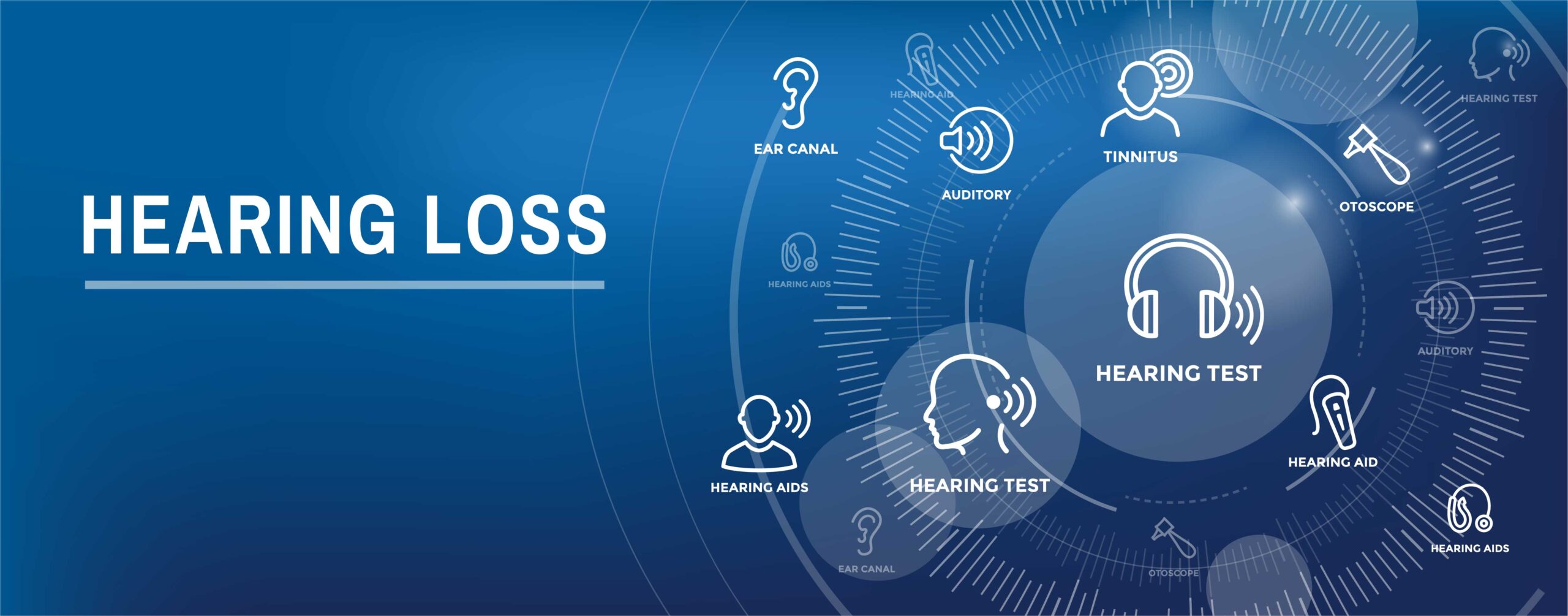Did you know there is more than one type of hearing loss? There are four broad categories of hearing loss: Sensorineural Hearing Loss, Conductive Hearing Loss, Mixed Hearing Loss, and Auditory Neuropathy. Each type of hearing loss presents its own challenges and treatment options.

Sensorineural Hearing Loss
This type of hearing loss happens when the inner ear or the actual hearing nerve itself becomes damaged. This loss generally occurs when some of the hair cells within the cochlea are damaged.
Sensorineural loss is the most common type of hearing loss. It can be a result of aging, exposure to loud noise, injury, disease, certain drugs or an inherited condition. This type of hearing loss is typically not medically or surgically treatable; however, many people with this type of loss find that hearing aids are beneficial.
Conductive Hearing Loss
This type of hearing loss happens in the outer or middle ear when sound waves are not able to carry all the way through to the inner ear. Sound may be blocked by earwax or a foreign object located in the ear canal; the middle ear space may be blocked with fluid, infection or a bone abnormality; or the eardrum may have been injured.
In some people, conductive hearing loss may be reversed through medical or surgical intervention. Conductive hearing loss is most common in children who may have recurrent ear infections or who insert foreign objects into their ear canal.
Mixed Hearing Loss
Sometimes people will have a combination of both sensorineural and conductive hearing loss. This occurs because an individual may have a sensorineural hearing loss and then they develop a conductive hearing loss or vice versa. Some diseases such as Otosclerosis affects both the outer and inner ear resulting in a mixed hearing loss. Treatment options usually involve medical treatment for the conductive hearing loss. If a hearing loss remains then hearing aids would be beneficial.
Auditory Neuropathy
Patients with auditory neuropathy also referred to as auditory neuropathy spectrum disorder, auditory synaptopathy, and auditory neuropathy/dys-synchrony present unique challenges to clinicians in relation to audiological evaluation and management.
Auditory Neuropathy occurs when there is a problem with the auditory nerve transmitting the signal from the cochlea to the brain. The hearing loss can vary from normal to profound and hearing levels may fluctuate. Understanding speech in background noise can be a particular difficulty.
The cause of auditory neuropathy includes lack of oxygen or jaundice at birth, or some neurological conditions.
Treatment options for auditory neuropathy include: Assistive technologies can usually help reduce the effects of auditory neuropathy. Many patients with accurately characterized AN/AS demonstrate success with cochlear implants. Trial with amplification is recommended prior to consideration of implantation.
How is Hearing Loss Diagnosed?
A hearing evaluation is critical for discovering exactly what are the types of hearing loss you have, and will help determine the hearing care solution that is right for you. Hearing aids are available in many sizes, styles and features; there are also communication strategies that work well with hearing aids.


